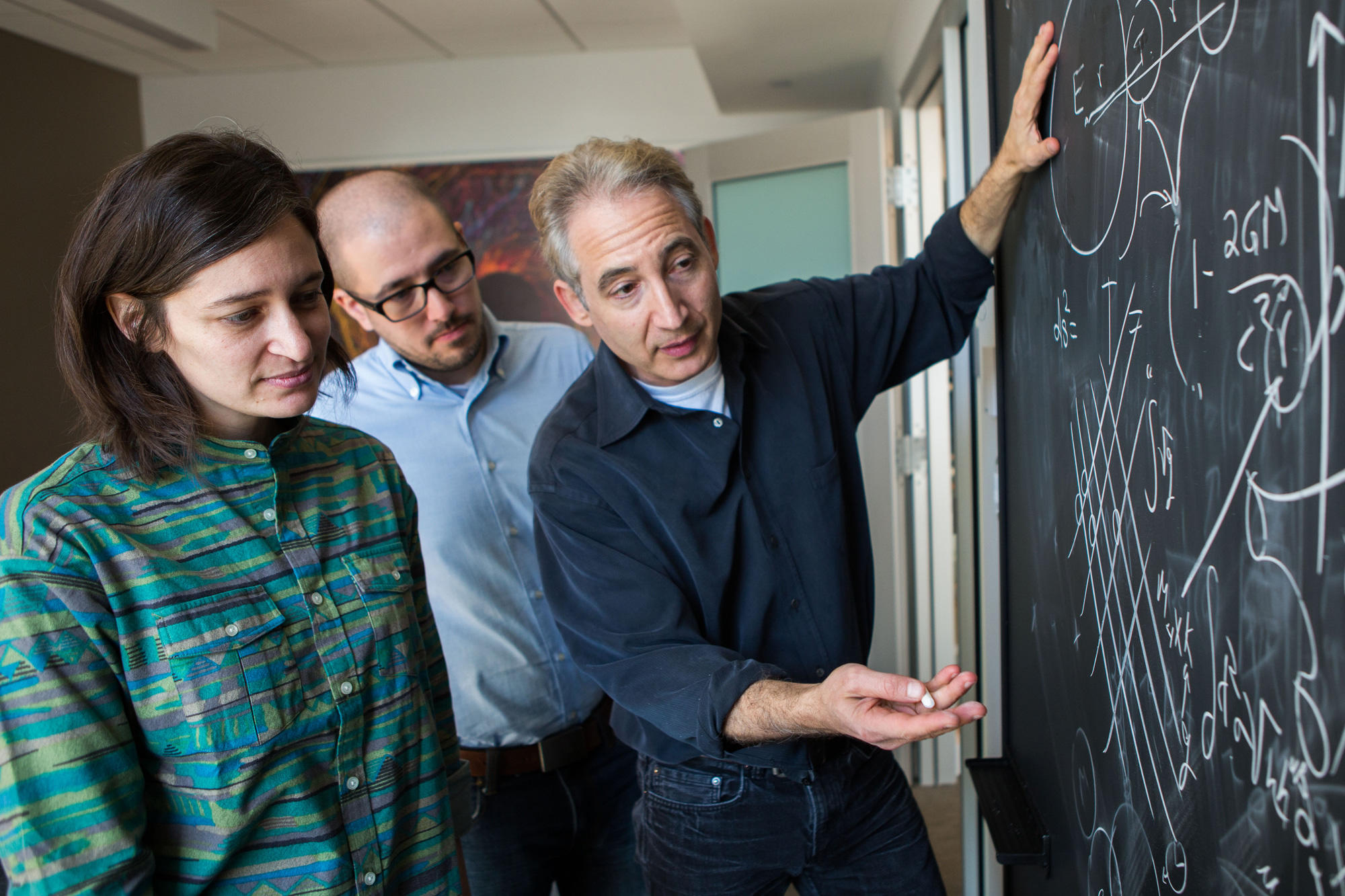Columbia string theorists, supersymmetry sleuths, and dark-matter detectives now have a modern facility in which to pursue their explorations of the universe’s deepest mysteries. The Center for Theoretical Physics, led by professor of physics and mathematics Brian Greene, opened this past fall in Pupin Hall, occupying part of the building’s eighth and ninth floors. The facility features a spacious lounge, which is bathed in natural light, and wall-to-wall communal blackboards to promote collaboration. An open glass staircase leads to additional meeting rooms, offices, and classrooms.
“The space is designed to encourage interactions among faculty and students,” says Greene, a prominent theorist who is also the cofounding director of Columbia’s Institute for Strings, Cosmology, and Astroparticle Physics. “There is a common misperception that physicists just sit down and think deep thoughts, but the reality is we need to bounce ideas off each other. We need to stand shoulder to shoulder and do calculations together, with one person injecting an idea and another taking it in a different direction. Those are the kinds of moments that will happen all the time in the new space.”
About two-thirds of Columbia’s fifteen professors who are theoretical physicists now have their offices in the center; over the next few years, the center will be expanded to occupy more of Pupin Hall’s eighth and ninth floors, making room for additional faculty, students, and postdoctoral researchers.
“We’ll eventually bring all our theorists together,” says Greene. “It’s important to get our students and postdocs in here, too, because the exchange of ideas across generations is the lifeblood of our field.”
The opening of the Center for Theoretical Physics is a major step forward for Columbia’s Science Initiative, a multi-year effort to invest in the University’s nine natural-science departments and fund the renovation of the departments’ physical facilities. Pupin Hall, which is home to the astronomy and physics departments, has also recently had its mechanical, electrical, and plumbing systems overhauled and its exterior copper cornice replaced.
“These improvements are absolutely vital for the recruitment of new faculty and students,” says Greene. “If you want to hire an up-and-coming theorist who’s looking at this department as an academic home potentially for the rest of his or her life, you’ve got to provide a facility that feels conducive to doing vibrant, cutting-edge research.”



